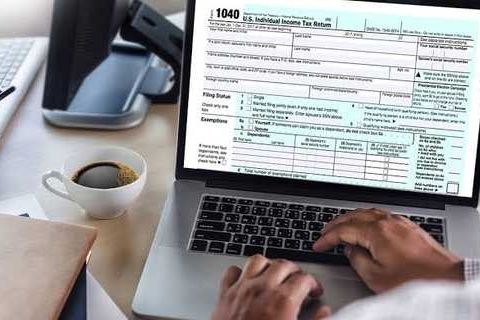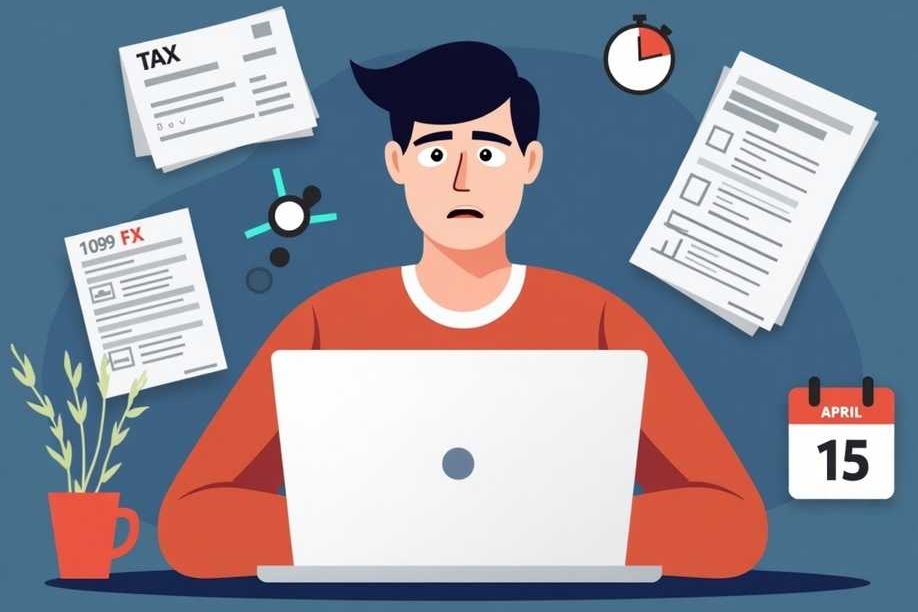Why This Tax Season Matters More Than Ever
As a young freelancer in the U.S., managing taxes can feel like navigating a maze blindfolded. But with new updates from the IRS rolling out for the 2025 tax season, staying informed is more important than ever. From new income thresholds to updated 1099 rules, these changes can directly impact how much you owe—or get back.

Freelancers and the IRS: A Relationship You Can’t Ignore
Unlike traditional employees, freelancers don’t have taxes automatically withheld. This means it’s your responsibility to track your earnings, expenses, and tax payments. If you’re using platforms like Fiverr, Upwork, or even getting paid via Zelle or PayPal, these transactions may now be more heavily scrutinized by the IRS under the latest reporting guidelines.
The New $600 Rule (Yes, It’s Still a Thing)
One of the biggest updates that continues to affect freelancers is the IRS’s strict enforcement of third-party payment reporting. If you receive more than $600 through platforms like Venmo, Cash App, or PayPal for goods and services, those platforms are required to send both you and the IRS a Form 1099-K.
This means even if you did a couple of gigs on the side and got paid via Cash App, it may now be taxable income—and skipping it could trigger penalties.
Estimated Tax Payments: Don’t Wait for April
If you’re earning income regularly, the IRS expects quarterly estimated payments. Miss them, and you could face penalties. The due dates for 2025 are:
- April 15, 2025
- June 17, 2025
- September 16, 2025
- January 15, 2026 (for Q4 of 2025)
Set calendar reminders and use tools like IRS Direct Pay or apps like QuickBooks Self-Employed to stay on track.
Business Deductions: Maximize What You Can Write Off
The IRS allows freelancers to deduct a wide range of business-related expenses. In 2025, the IRS has slightly adjusted mileage rates and clarified deductions for remote workers.
- Internet bills (proportional use)
- Software subscriptions
- Office supplies
- Business-related meals and travel
Just make sure you keep digital receipts and use expense tracking apps—because if you ever get audited, documentation is key.
Retirement Contributions for Freelancers: A Smart Tax Move
Contributing to a SEP IRA, Traditional IRA, or Solo 401(k) can not only secure your future but also lower your taxable income today. For the 2025 tax year, the contribution limits have been increased slightly to adjust for inflation. These savings add up fast and could bump you into a lower tax bracket.
Tax Help for Freelancers: Don’t DIY If You’re Unsure
Even with modern software like TurboTax or FreeTaxUSA, taxes for freelancers can get complicated fast. If you’re not 100% confident, consider hiring a CPA or using a tax service that specializes in gig economy workers. Many offer affordable rates for students and part-timers.
Conclusion: Stay Ahead, Stay Informed
Being a freelancer gives you freedom, but it also comes with responsibility—especially when it comes to taxes. By keeping up with these IRS updates and taking advantage of deductions and planning, you’ll avoid penalties and possibly even boost your refund.
